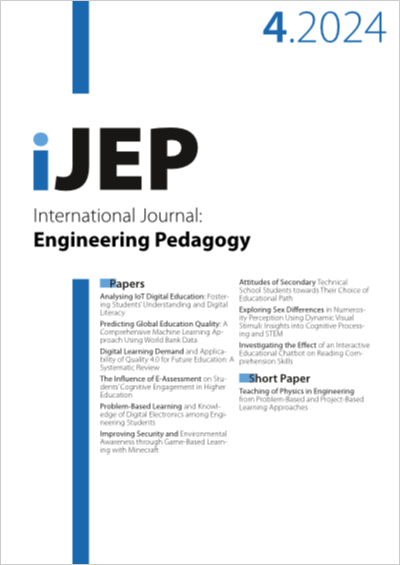Predicting Global Education Quality: A Comprehensive Machine Learning Approach Using World Bank Data
DOI:
https://doi.org/10.3991/ijep.v14i4.48205Keywords:
'Machine learning', 'Education quality', 'World Bank data', 'predictive modeling', 'gobal education assessment', 'KNN'Abstract
This paper introduces an innovative approach to predicting the quality of education on a global scale. It leverages a comprehensive dataset spanning multiple years and countries from the World Bank. Our methodology involves two key steps: first, unsupervised clustering using the K-means model to categorize countries based on their educational quality levels; and second, employing supervised classification techniques to develop a predictive model. Through training and optimizing various machine learning (ML) algorithms, we aim to identify the most accurate model for predicting education quality. The outcomes highlight the efficacy of our approach, with the KNN algorithm demonstrating superior performance after hyperparameter optimization. It achieved precision, recall, accuracy, and AUC values of 0.9740, 0.9721, 0.9711, and 0.9959, respectively. These findings provide valuable insights for policymakers, educational institutions, and researchers, helping to identify areas that require attention and to design targeted interventions.
Downloads
Published
How to Cite
Issue
Section
License
Copyright (c) 2024 Rabab El Hatimi

This work is licensed under a Creative Commons Attribution 4.0 International License.


